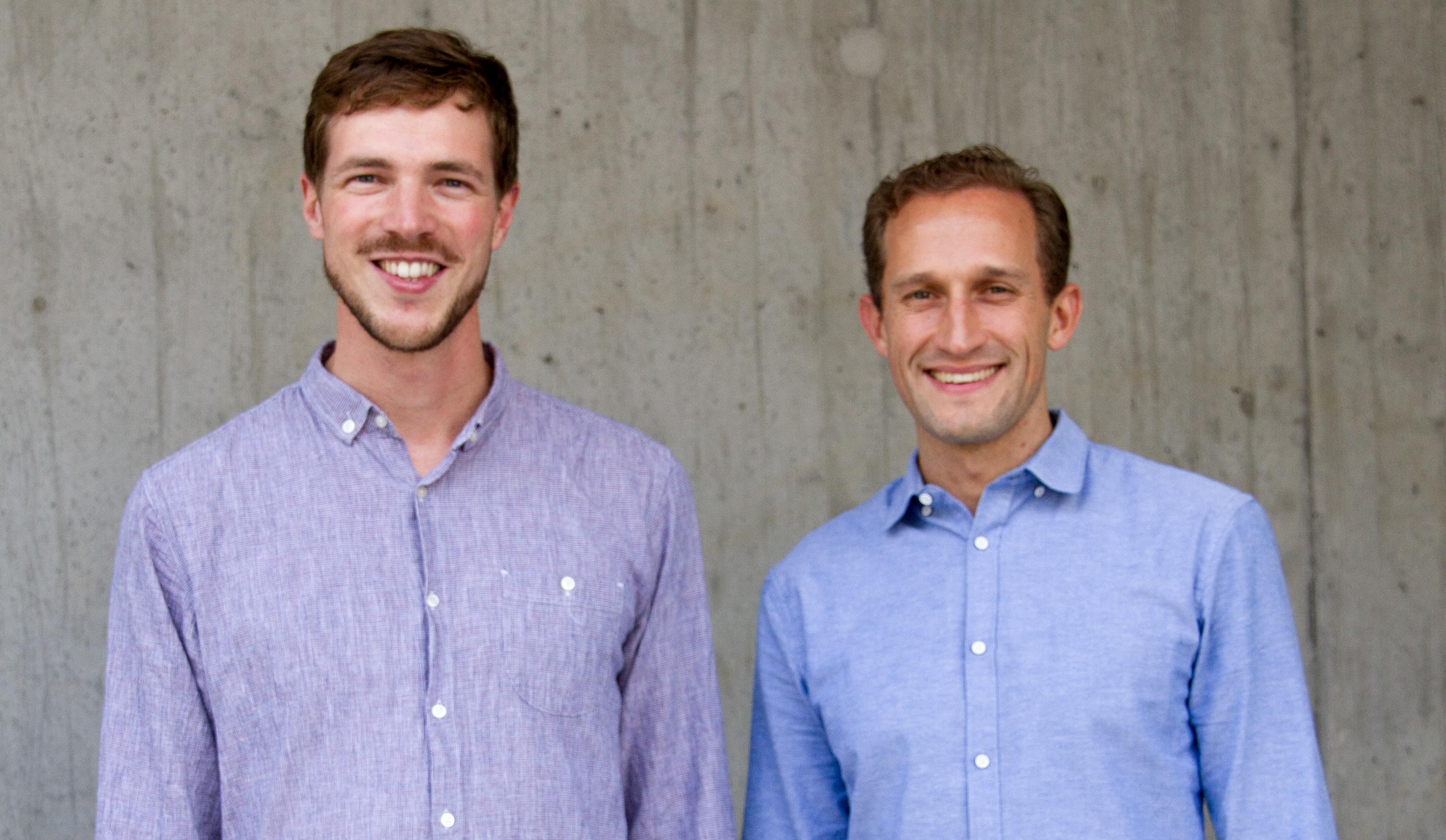TOP 100 alumni Beekeeper is one of Europe’s fastest growing startups. The founder and CEO, Cristian Grossmann, explains how he is managing expansion.
Mexico-born Cristian Grossmann came to Switzerland to study. He gained a Master’s in chemical engineering from ETH Zurich and then a doctorate in electro engineering. During the Venturelab courses, he worked on business models and founded Beekeeper with three colleagues. In his leisure time, the 37-year-old spends six to 10 hours a week on sporting activities. Beekeeper is a digital workplace app for the blue-collar workforce that covers shift management, secure one-to-one and group messaging, automated onboarding, payroll and more, all integrated with existing systems.Cristian Grossmann, what does a founders’ breakfast at Beekeeper look like?
Cristian Grossmann: CTO Flavio Pfaffhauser and I meet every Wednesday morning for coffee and croissants. We exchange ideas and clear our minds; no agenda and we don’t look at the key performance indicators.
You both started with a flirting platform for students. Now you have customers including Heathrow airport and the Hilton hotel chain. How did that come about?
The blicKlick flirting platform was all about communication and building groups via smartphones. What we lacked was a business model. Until one day we wondered whether we could also use an app with news feed and chat functions for internal communication within companies. Everything then moved very fast: we ran a pilot project at three Swissôtel locations and shortly after that Swissôtel was taken over by the Canadian FRHI Group, so we had the opportunity to roll out the Beekeeper app for 50,000 employees.
You’re focusing on the hotel industry, construction and industry in general; sectors where a lot of manual work still exists. Why?
Because there have been software and internal communication systems for office workers for ages. That market is dominated by giants such as Salesforce and Microsoft. If you add up the market capitalization of all existing companies, it comes to USD 180 billion. Conversely, up until a few years ago, there were very few solutions for communicating with blue-collar workers. It’s a gap we have squeezed into.
What’s the competition like?
There are a couple of competitors, but their platforms are set up for the needs of specific industries, whereas Beekeeper is for all sectors.
Which in turn places high demands on marketing and sales. How are you going about this?
We are trying to be as close as possible to our existing and potential clients. We have operational bases in Zurich and San Francisco, and we are also running branches in London, Berlin, Madrid and Austin, Texas.
Beekeeper has raised about CHF 26 million in capital to date. Is the next financing round imminent?
We’ll be ready at the start of 2019. We will close the next big round and put the money into further expansion: for example, building up a 100-strong team for software development, either in Poland or Portugal. At the same time, you are pursuing the Marketplace project.
What’s it all about?
The best thing to compare it to is Apple’s App Store or Google Play. Our Beekeeper platform is its operating system and can be used for running apps – ours and also third-party apps; for example, from customers and independent software developers – with additional functionality. This ecosystem approach is a way of accelerating our expansion.
Funding rounds, new business models and more and more staff: how do you keep on top of it all?
It’s a challenge, but it’s not black magic. The key thing is planning. As the boss of a fast-growing company, I always need to be thinking today about what will be needed tomorrow.
Such as?
Take the management structures, for example. If a startup has more than 15 staff, it becomes difficult for the founders to communicate directly with every individual person. You have to define responsibilities and delegate and control. When we reached this stage, we set up an eight-strong management team.
So every other employee became a manager. Did that make sense?
Definitely, because we created the organizational requirements for a company with 50 to 60 employees. I think that’s the next tipping point, which is why we were quick to set up a middle management team that can lead 150 employees.

The team of Beekeeper
You’re likely to reach that threshold this year. What then?
We are currently establishing training courses for future Beekeeper managers, based on role models and tried and tested practices. In a medium-sized business, an instruction and control system reaches its limits, so the aim is for participants to internalize our corporate culture.
Switzerland has a lack of specialists. Where do you find all the people to recruit?
We currently have 34 nationalities in our team. We recruit globally and are benefiting, for example, from Brexit, because it has forced many highly qualified people in the UK to look for a job on the Continent. The key factor is that we offer attractive jobs; besides a motivating environment, that includes things like an employee share option program.
That sort of programme is complicated and time-consuming to manage.
You obviously have to comply with certain rules and processes. But the same applies to data protection or employing non-EU nationals. My job is to set up internal processes that make complicated things simple.
That doesn’t sound particularly spectacular...
...but our investors are very appreciative. An investor wants to see us grow, but we can achieve that only if we do our homework correctly.
Looking ahead, where is Beekeeper heading?
Around the world, 600 million people work in front of screens at office desks. More than three times that number – more than 2 billion – work outside on building sites, in warehouses, factories or hotels. Managers can communicate digitally with these people only via smartphones. Our aim is that 500 million employees will use our app by 2030.
What is the implication of this for a potential exit?
We are currently market leader with 2 million app users. If we manage to keep this position, a trade sale and thus loss of independence does not make sense. A company that’s number
one in a large, international market should be listed on the stock market.
What makes you sure you can achieve this goal?
The experience of our customers’ staff. When I was in San Francisco recently, I talked to a cleaner who uses our app. She used to have to spend an hour and a half driving to the office
on a Sunday afternoon to view the shift schedules for the following week. Beekeeper saves her this journey. She had tears in her eyes when she was telling me this.
Interview by Jost Dubacher, first published in the TOP 100 Swiss Startup Award magazine 2018.




